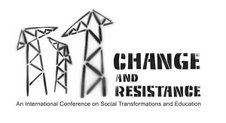Ramona Fruja
Michigan State University
College of Education and Department of Sociology
Depending on which side of the interpretative spectrum one stands, globalization can be the catch-all phrase for either great loss or positive world transformations—as the root of all modern evil, in terms of hegemony and homogeneity, or as the source for the more benign global discourses of environmentalism, human rights and social justice, or strives for more economic equity. However, such dominant narratives tend to crowd out alternatives and the immediate interpretations—that can manifest themselves both in the popular imaginary and in academic research—can also apply to specific aspects of globalization (like the unprecedented scale of world migration) and their implications for certain social structures (such as the family). For example, in 1965, the Immigration and Nationality Act in the United States, has been amended to remove national origin quotas as a basis for granting immigrant visas. Today, the largest immigration streams in the United States are of national origins that previous legislation has specifically banned or severely restricted from the country, based on their presumed inability to integrate into the perceived mainstream. American society currently experiences the highest immigration wave in its history, and the incurring changing demographics parallel post-colonial and post-communist changes in European demographics. These global transformations reflect on the complexities of families at multiple levels, connecting with issues of race, ethnicity, religion, language, class, gender roles, political affiliation and other cultural manifestations. What does it take to be considered an immigrant family when the popular images of this category, in the United States, involve a group from Mexico or of people who do not fit a “white” phenotype? What are the implications for immigrant families in the middle of sweeping transformations, when both the Western European and, to a greater extent, the north-American historical construct of the immigrant include representations of “hard work ethic” and the “model minority myth”? Questions such as these exemplify the ways in which immigrant families in the United States and Western Europe stand at the intersection of seemingly contradictory situations: they are increasingly present while they may remain disturbingly othered both by not fitting into an expected mold of the “traditional” family, and by deviating from the constructions of what an immigrant family should be. Drawing on studies on immigrant families, as well as personal narratives, this presentation will focus on the social implications of such processes of differentiation in the definition of the family in the context of global migration, especially as they pertain to the relationship between immigrant families and schools. This is a crucial aspect to the healthy growth of immigrant youth, as they negotiate their simultaneous roles in families, schools, communities, and in the new societies.
Subscribe to:
Post Comments (Atom)

No comments:
Post a Comment